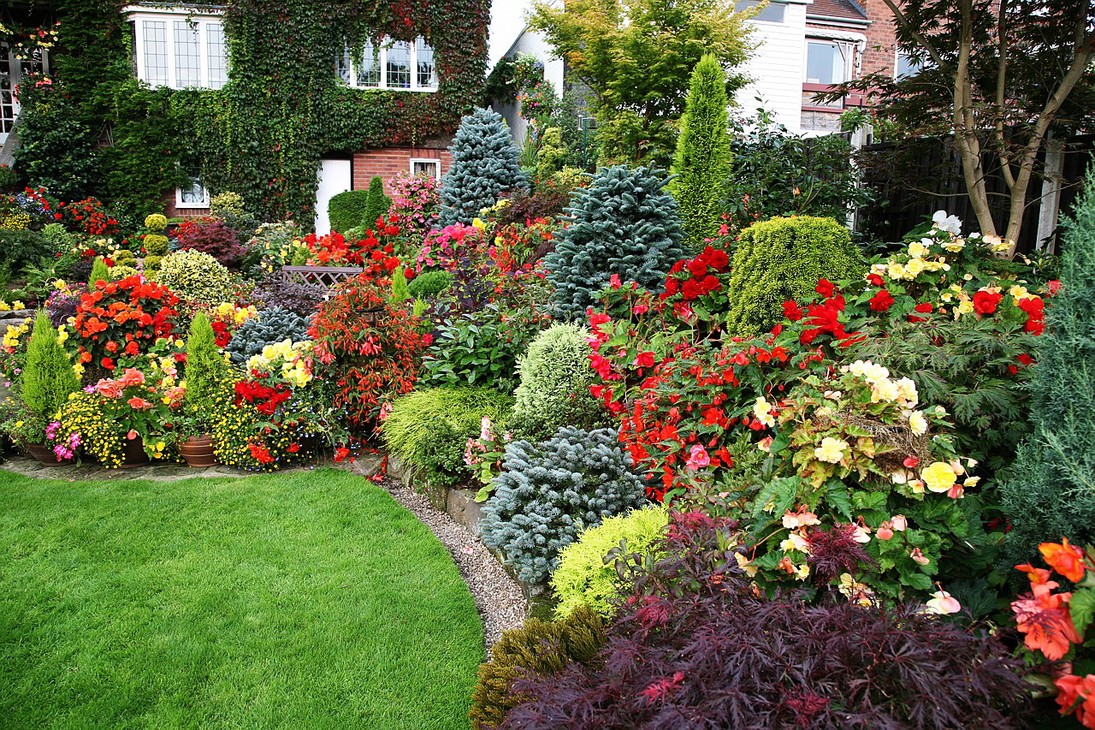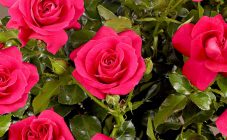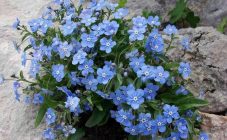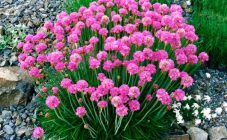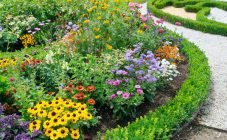Content:
Having a garden plot, it is not necessary to plant it with garden beds. At least one flower bed or bed in the country will not hurt. Flowers can transform even the most boring landscape. In addition, they are easier to care for than vegetables. Having picked up unpretentious perennial flowers for the flower bed blooming all summer, you can enjoy the beauty without physically straining.
The basics of landscape design
Flowers do not just decorate the garden - they are a connecting element that unites rock garden stones, standing nearby sculptures and other landmarks of the territory in a single composition. The variety of species creates whole flower complexes.
In order to see at least some kind of harmony, you should not plant flowers using the "poke" method. They think in advance about the place for the flower garden, are determined with its shape and type. Whether it will be a rabatka, mixborder, alpine slide, it is desirable that they smell with color all season.
You can plant flowers with different flowering periods on the same flower bed - one more plant does not have time to drop its petals, the next one opens its buds to replace it, and so on until late autumn. But such a flower bed will require constant care.
Summer residents who periodically come to the site are more suitable for a flower garden for the lazy. For him, the most unpretentious perennials are selected, which will bloom in early summer and wither in October.
The most unpretentious perennials
Ornamental flowers in most cases are demanding for agricultural conditions. Therefore, with improper care, they can die. Also wants attention and the annual type of flowers. A perennial wintering in the open field is the most optimal option for those who want to have a beautiful design without spending time on its development.
Popular varieties of garden perennials
| Name | Family | Description |
|---|---|---|
| Aconite (wrestler) | Buttercup | · Reaches a height of 1.5 m. Blossoms blue, deep blue and purple from June to September; Suitable for open areas, but can also be planted in the shade |
| Pansies | Violet | · Height of bushes - 15-30 cm. Flowers are painted in various bright shades; · Pleasing to the eye throughout the summer; They take root in any conditions, quickly transforming from a compact bush into a spreading plant |
| Armeria seaside | Pigous | · Traditional flowers for rock gardens; · Form dense clumps of white, pink, deep red shades; In warm regions, they can bloom from the end of April, shed their petals by the beginning of September |
| knapweed | Astrovye | · Erect flowers, often cut into bouquets; Stand out with beautiful baskets in different shades of blue |
| Gailaria | Astrovye | · A branched bush reaches a height of 0.3-0.5 m, flowering - from June to the end of October; · Reed-type petals are painted in golden or bloody shades; Develops better in sunny areas |
| Delphinium | Buttercup | · Tall (up to 180 cm) erect plants, look great in group plantings; · Cylindrical inflorescences have different colors (depending on the variety); Shade-loving enough flower |
| Mirabilis | Niktaginovye | · Erect branched stems reach a height of 0.8 m; · Throw out funnel-shaped flowers of all warm shades; The most acceptable breeding method is seedlings |
| Scabious | Honeysuckle | · On low straight stems, delicate spherical flowers from white to purple shades are formed; It is enough to sow seeds in fertile soil and admire the flowering from June to October |
| Rudbeckia | Astrovye | · It stands out for its high (up to 2.5 m) curved stem and beautiful golden double flowers; Develops well in lighted flower beds |
| Eschsholzia | Poppy | · The bush barely reaches half a meter. Branching stems with bluish waxy leaves; · Cup-shaped, with corrugated edges, the flowers have red, pink, orange, cream, white shades; Sufficiently drought tolerant plant |
Landing rules
When forming a flower garden, several points should be considered:
- some perennials reproduce by seeds, others only by dividing a bush or through seedlings;
- take into account the forms - in some plants the stems are erect (single or collected in a bush), in others - creeping;
- flowers differ in height and shades of petals.
The summer resident will have to work hard to begin with, choosing the right varieties so that the flower bed does not look luridly comical. It is not the abundance of color shades that is important, but their correct combination with each other. So, if you place cold paints in the background, the flower garden will seem larger than it really is.
Small flowers interspersed with large ones do not look harmonious. But if they are properly delimited in a flower bed, you can get a beautiful floral "carpet".
Flower beds can be of the correct geometric shape or asymmetric, as well as of various sizes - from 3 to 30 sq.m. Before planting flowers, it is recommended to draw a plan on paper and mark on it the locations of the perennials selected for planting.
If the flower bed is small, then it is more rational to make it flat (with plants of the same growth). In an extensive flower garden, the center is raised, planting large bushes, closer to the edge - small single individuals.
Flower bed formation
Having outlined the place of the future flower garden, they outline its borders on the ground. Then they dig up the area on the bayonet of the shovel. If the fertile layer is not thick enough, it is recommended to top up with fresh soil.
The landing starts from the center of the figure and gradually moves towards the edges. Plant spacing and planting depth depend on the type of flowers used.
It is important to consider the location of the flower garden. The best option is from north to south. If this condition cannot be met, then tall plants are planted in the eastern-western flowerbed in the northern part. The undersized assortment will be located closer to the south.
Further care
Choosing unpretentious flowers blooming all summer long for the flower bed, the summer resident hopes that he will not have to spend a lot of time caring for them. In order for the flower garden to really develop on its own, you must first put the seed in well-fertilized soil.
Throughout the season, care is reduced to periodic watering if it is a dry summer. If you wish, you can add top dressing, but the food that was used during planting will be enough.
Despite the fact that the plants in the above list are classified as perennials, it is recommended that they be transplanted to a new site every 4-5 years. During this time, the soil is depleted, and the flower carpet turns pale over time.
Having carried out such landscaping of the garden plot, you can be sure that the dacha will look attractive throughout the season.
